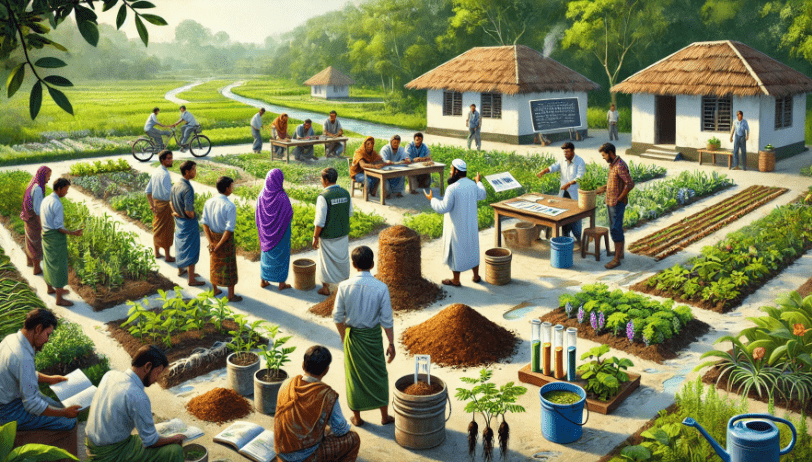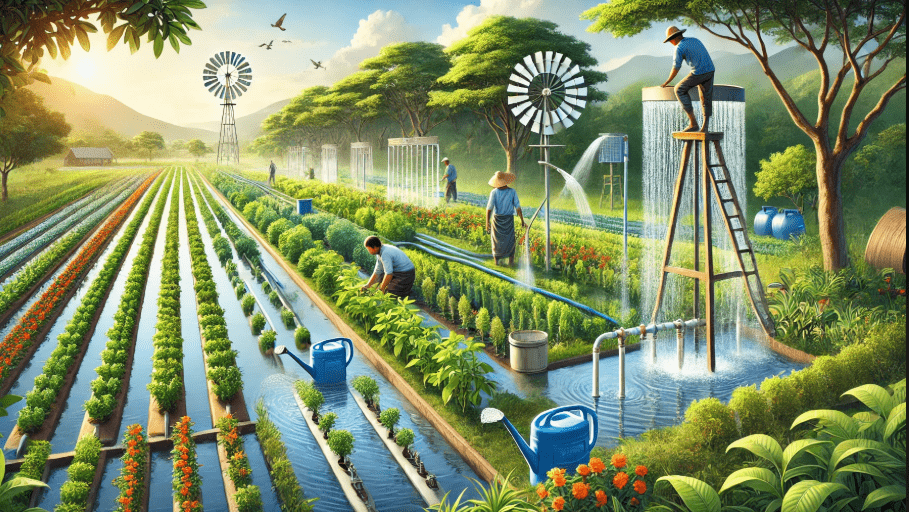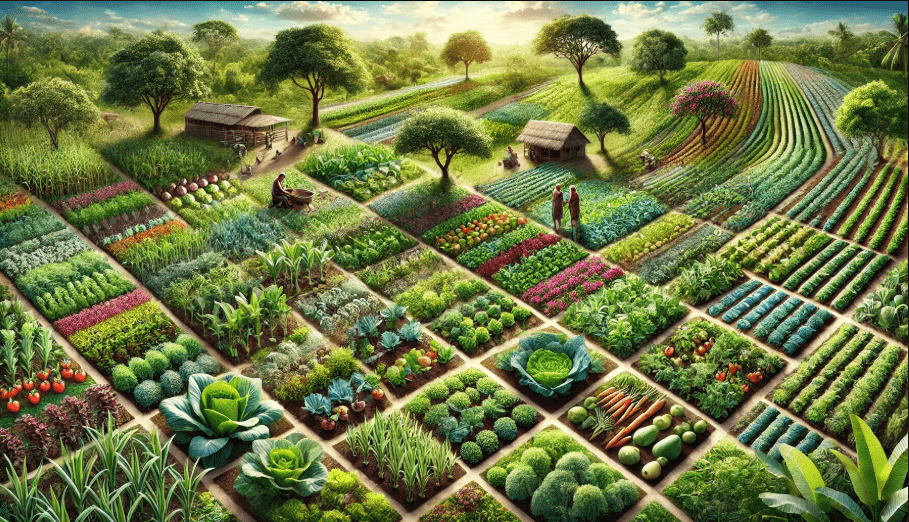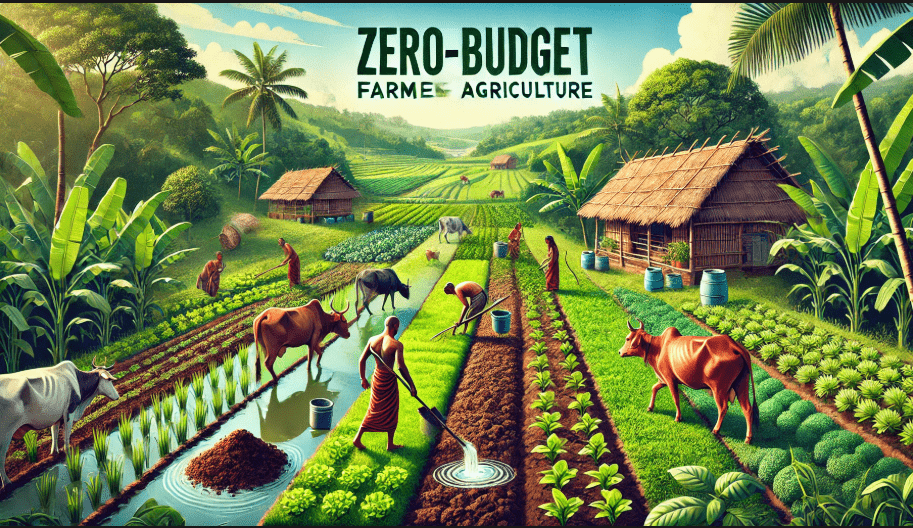Zero Budget Agriculture
Known as Zero Budget Agriculture (ZBA) or Zero Budget Natural Farming (ZBNF), this farming approach eliminates the need for commercial fertilizers and pesticides. Instead, it relies on affordable, nature-friendly techniques that support soil fertility, boost agricultural output, and foster environmental harmony. It offers a sustainable pathway for small farmers aiming to reduce costs while maintaining productivity.
Natural inputs
Natural inputs refer to organic, eco-friendly materials used in farming and gardening to enhance soil fertility, support plant growth, and maintain ecological balance. Unlike chemical fertilizers and synthetic pesticides, natural inputs are derived from biological and mineral sources, making them safe for the environment, crops, and human health.


Soil Health
Soil health is the cornerstone of agricultural success and ecosystem stability. It refers to the soil’s ability to perform essential functions such as supporting plant growth, regulating water, cycling nutrients, and maintaining biodiversity. Healthy soil is a living ecosystem teeming with microorganisms, organic matter, and nutrients that sustain life.
Water Conservation
Water conservation is the practice of using water wisely to ensure its sustainability for present and future generations. It is essential in addressing the challenges of water scarcity, preserving ecosystems, and mitigating climate change impacts. Conserving water benefits not only humanity but also every living organism that depends on this vital resource.


Companion Planting
Companion planting is a technique that involves strategically growing different plants together to mutually benefit their growth, health, and productivity. By leveraging natural interactions among plants, this method enhances biodiversity, minimizes pest issues, and improves soil health. It’s a sustainable gardening practice that aligns with ecological principles.
Agroecology
Agroecology is an approach to farming that emphasizes ecological principles, sustainability, and social equity. It integrates agricultural practices with the natural environment, aiming to create resilient and productive systems that support biodiversity, improve soil health, and empower local communities.

Natural Farming

Organic Inputs
Zero Budget Agriculture emphasizes the use of locally available organic materials such as cow dung, cow urine, and compost to nourish the soil. These natural inputs help improve soil fertility and structure, ensuring that plants receive essential nutrients.
Bio-Enhancers
Utilize bio-enhancers like Jeevamrutha (a mixture of cow dung, cow urine, jaggery, pulse flour, water, and soil) to boost microbial activity in the soil. These bio-enhancers promote a healthy soil ecosystem, leading to robust plant growth.


Mulching
Implement mulching techniques using organic matter to retain soil moisture, regulate temperature, and suppress weed growth. Mulching also gradually decomposes, adding organic matter to the soil.
Traditional Wisdom

Crop Diversity
Embrace crop diversity by practicing intercropping and crop rotation. These techniques not only improve soil health but also reduce the risk of pest infestations and disease outbreaks.
Seed Preservation
Preserve and use indigenous seeds that are well-adapted to local climatic conditions and resistant to pests and diseases. These traditional seeds often perform better in zero-budget farming systems.


Cultural Practices
Incorporate traditional farming practices that have been passed down through generations. These practices often hold valuable insights into sustainable and resilient agricultural methods.
Cost Efficiency

Resource Management
Efficiently manage natural resources to reduce dependency on external inputs. Utilize on-farm resources such as animal manure, green manure, and cover crops to enhance soil fertility and structure.
Labor Optimization
Maximize the use of family labor and community support to minimize labor costs. Engage in collective farming practices and knowledge sharing to achieve better results with fewer resources.


Low-Cost Innovations
Implement low-cost farming innovations such as homemade pest repellents, organic fertilizers, and simple irrigation systems to maintain productivity without incurring significant expenses.
Environmental Sustainability

Soil Health
Prioritize soil health by avoiding chemical fertilizers and pesticides that degrade soil quality. Instead, focus on organic inputs and sustainable practices that enhance soil fertility and biodiversity.
Water Conservation
Adopt water-saving techniques such as rainwater harvesting, drip irrigation, and efficient water management to ensure sustainable water use in agriculture.


Biodiversity Enhancement
Encourage biodiversity by planting a variety of crops, trees, and cover crops. This diversity supports beneficial insects, wildlife, and pollinators, creating a balanced and resilient ecosystem.
Climate Resilience
Implement practices that increase the farm's resilience to climate change. This includes soil conservation, agroforestry, and the use of drought-resistant crop varieties.



